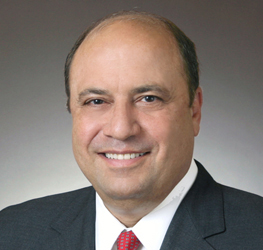Legislature: House and Senate Extend the Legislative Session by One Week to Resolve Budget and Gaming Issues
On May 1, 2009, the Florida Legislature adopted a concurrent resolution extending the 2009 Regular Session through Friday, May 8, 2009. Under the state constitution, the regular session is limited to 60 consecutive days, but the Legislature has the power to extend the session. The concurrent resolution also provided that the only legislation that would remain available for consideration after May 1, 2009 would be the General Appropriations Act, legislation implementing the General Appropriations Act, and matters that were under consideration by joint conference committees.
Senate President Jeff Atwater (R-North Palm Beach) and House Speaker Larry Cretul (R-Ocala) said that their plan would be to resolve between themselves any issues that had not been resolved in the conference process on Monday, May 1, 2009 with a goal of having printed bills available to all members of the Legislature no later than Tuesday, May 2, 2009. The state constitution provides a 72-hour cooling off period before votes can be taken on the budget agreement. The presiding officers said their intent was for each chamber to begin debating the bills on Thursday, May 7, 2009, and to vote on the bills as soon as constitutionally allowed.
State Budget: Conference Committees Move Quickly Toward Agreement, but Controversies Over the Budget and Gaming Remain
Sen. Atwater and Rep. Cretul broke the budget logjam on Tuesday, April 28, 2009 reaching agreement on the broad outlines of the $65-billion state budget for the fiscal year beginning July 1, 2009. The presiding officers decided to move forward with conference committee negotiations on the budget despite the lack of any agreement on gaming issues, which became the subject of a separate conference committee. The key agreements that allowed joint conference committees to begin negotiating the details of the budget included raising the tax on cigarettes by $1 per pack (but not imposing a tax on cigars); raising fees for hunting and fishing licenses; raising a variety of fees and fines on drivers and vehicles; taking approximately $600 million from special purpose trust funds, including $100 million from the transportation trust fund; and placing approximately $1.7 million on reserve. The cigarette tax is expected to raise $930 million, and the fee and fine increases are expected to raise $800 million.
Pay cuts for state employees have been a continuing controversy. The House had proposed pay cuts of four to five percent for most state employees, while the Senate had proposed minor cuts and some layoffs. As of Sunday, May 3, 2009, conferees had apparently agreed on a two-percent pay cut for state employees who earn more than $45,000 a year, no pay cuts for state university system employees, and no increase in state employees’ health insurance costs.
A number of major issues remain to be resolved by the Senate President and the House Speaker. Although the chambers have agreed on the tobacco tax increase, other issues that were not resolved by the conferees include additional taxes on cigarettes produced by companies, including the Opa Locka-based Dosal Tobacco Company, which were dismissed from the state’s litigation against the tobacco industry, and the amount of the appeal bonds that tobacco companies must post.
The controversial gaming issues also had not been resolved by the conferees as the extended session entered its final week. During the first nine weeks of the legislative session, the Senate had consistently supported expanded gaming at casinos operated by the Seminole Tribe of Florida and increased gaming at pari-mutuel facilities to offset the competition from the Seminole casinos, while the House had consistently opposed expansions of gaming. On Friday, May 1, the House presented an offer that would allow blackjack only at two Seminole facilities in Broward County and would give the tribe the exclusive right to operate Vegas-style slot machines outside of Broward and Miami-Dade counties, in exchange for payments of at least $200 million a year to the state. The House proposal also would lower taxes on pari-mutuels and increase the betting limits on poker games at pari-mutuel facilities. The House proposal countered an earlier Senate proposal that would have allowed a full range of games at Seminole casinos and blackjack at pari-mutuel facilities.
On Sunday, May 3, 2009, Governor Charlie Crist indicated that the failure of legislators to reach an agreement on gaming could lead to vetoes of budget items. Speaking to reporters, Gov. Crist said that if an agreement does not happen, “I may have to cut things out of this budget that are put in there and the members are acutely cognizant of that. There are important things they want to be able to do and I want them to do. In some ways the Seminole compact money gives us the opportunity to do that.”
Legislature: What Passed and What Failed
May 1, 2009 was effectively the end of the legislative session except for those issues that were the subject of conference committee negotiations.
Here is a list of some of the major bills that passed:
- Workers compensation: restoration of caps on attorney fees, which were nullified by a 2008 Florida Supreme Court decision.
- Property insurance: creation of a “glide path” that would allow Citizens Property Insurance Corp. to raise premiums by up to 10 percent a year, rather than immediately imposing actuarially sound rates, and to let insurance companies recover additional costs resulting from shortfalls in the Florida Hurricane Catastrophe Fund.
- Crime: inclusion of all persons arrested for felonies in a state DNA database.
- Education: authorization for each state university to increase tuition by up to 15 percent.
- Traffic control: authorization for officers to stop a driver for a seat belt violation. Currently, a person can be cited for a seat belt violation only if he or she is stopped for some other offense.
- Elections: authorization for a vote on a proposed constitutional amendment to repeal public financing of campaigns.
- Growth management: exemption from transportation requirements for heavily populated counties.
- Property taxes: authorization for votes on proposed constitutional amendments to lower the cap on assessment increases for non-homestead property and to create tax breaks for first-time homebuyers.
Several major, highly publicized bills remained alive through May 1, 2009, but ultimately failed, including:
- SunRail: the proposal to create a central Florida commuter rail system failed, even after it was linked to new funding for Tri-Rail in South Florida.
- Energy: the proposal, supported by Gov. Crist, to require power companies to use renewable sources for at least 20 percent of their energy production by the year 2020 failed, even after it was amended to include both nuclear power and renewable sources. A late-session effort to authorize offshore oil drilling in the Gulf of Mexico also failed.
Public Affairs News Alert is part of our ongoing commitment to providing up-to-the-minute information about pressing concerns or industry issues affecting our clients and our colleagues. If you have any questions about this alert or would like to discuss these topics further, please contact your Foley attorney or any of the following individuals:
Marnie George
Tallahassee, Florida
850.513.3398
[email protected]
Michael P. Harrell
Tallahassee, Florida
850.513.3373
[email protected]
Robert H. Hosay
Tallahassee, Florida
850.513.3382
[email protected]
Jonathan P. Kilman
Orlando, Florida
407.244.3256
[email protected]
Thomas J. Maida
Tallahassee, Florida
850.513.3377
[email protected]
Leonard E. Schulte
Tallahassee, Florida
850.513.3380
[email protected]

